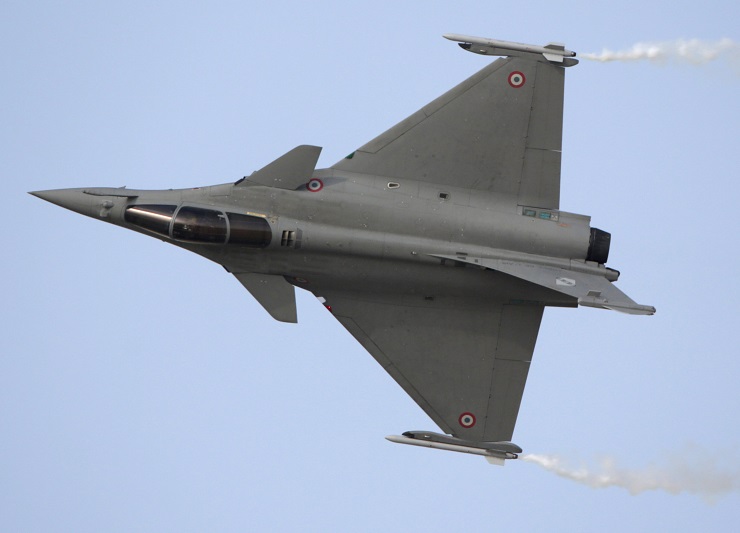Whereas Egypt may have its own reasons to intervene in Libya, it appears that the current dynamics of the north African state’s latest decision to send its military into Libya go far beyond the traditional parameters of ‘national interest.’ In many ways, Egypt is acting like a client state of some Arab powers, some of whom have long been involved in another murderous war in Yemen and have long been bogged down. Since they don’t have the stamina and even enough capacity to make yet another direct intervention, Egypt, which has increasingly relied on Saudi and Emirati support since the last military coup, becomes a natural choice. As it stands, when the elected government of Egypt was overthrown in 2013, the UAE and the Saudia had rushed to provide 3 billion dollars and 5 billion dollars respectively to ‘support’ the country’s ailing economy. As a matter of fact, Gulf countries have supported Egypt with almost 92 billion dollars since the uprising that led to the end of Mubarak’s long rule. As it stands, top Gulf donors have been Saudi Arabia and the United Arab Emirates. For Egypt and al-Sisi regime, therefore, it appears to be the pay-back time.
Even reports in the Arab media suggest that Gulf powers have ‘persuaded’ Egypt to intervene in Libya to buttress support for the retreating Khalifa Haftar, which means that the Egyptian army, even though it is not trained to fight external wars, will have little to no say in shaping or determining how things work on the ground.
As it stands, Gulf states in general, and the UAE in particular, have, as reports in the Arab media show, “taken over” the Egyptian military establishment. Not only do the Emirati leaders regularly attend military parades, and witness the opening of the combat camps, but also mediate and finance arms sales for the Egyptian military. The UAE was accordingly a party to Egypt’s 2015-16 purchase of Rafael jets. There is no other way how a cash-stripped Egypt could ever make a deal worth 6 billion dollars with France. Almost 19.5 billion dollars were pumped into the Egyptian central bank by the Gulf states, including the UAE, Saudi Arabia and Kuwait.
This explains how and why, despite Egypt’s dire economic situation, Sisi’s regime has been snapping up imported arms like never before. According to SIPRI, Cairo’s arms imports tripled between 2015–19, making it the world’s third-largest arms importer.
Besides it, a lot of investment the UAE has been making in Egypt has come through Egyptian military operated companies. Also, most of the aid that came into Egypt following the coup went to the military and its companies. These companies tend to often subcontract its big projects to the private sector. And, in the current unsettled environment subcontracting becomes less likely to be questioned than large private sector contracts.
This is how the UAE has tightened its control over the Egyptian army in last few years. It is now using this control to ‘persuade’ it to intervene in Libya, offering, in addition to the usual aid, to broker a deal for Egypt with Ethiopia over the on-going Dam controversy.
The target is Turkey is as well
The reason why the powerful Gulf states are pushing Egyptian army into Libya is not just the GNA’s increasing power, but the support is has as of lately been receiving from Turkey. Indeed, for the Saudis and the Emiratis, Turkish military, having enough capacity and experience to intervene, poses a direct threat to their own hegemonic ambitions. Therefore, to fight the Turkish army, the Gulf states are keen to send their strongest [client] army from Egypt.
Over the years, the UAE and Saudi Arabia have come to realise that Turkey is as great a threat to them as Iran. Indeed, Israeli officials have been impressing upon the Gulf leaders the importance of confronting Turkey and its ‘neo-Ottoman’ ambitions. Although they have not clashed yet, with Turkish intervention in Libya and Egypt’s imminent intervention on behalf of the UAE and Saudia, it will be the first time that the Gulf states would fight a [proxy] war against Turkey. The clash, therefore, has begun.
As it stands, when unidentified bombers attacked Turkish air defence batteries in the newly recaptured Libyan airbase of Al-Watiya, Abdulkhaleq Abdulla, an adviser to the Emirati royal court, tweeted: “On behalf of all Arabs, the UAE has taught a lesson to Turks,” Although he later decided to delete this tweet, some reports did show that the bombers were most probably Egyptian Rafael jets—aircrafts that the UAE had helped Egypt buy.
Determined to not allow Turkey any leeway in Libya to realise its ambitions, the UAE and Saudi Arabia unsurprisingly were the first two countries to support ‘Egyptian decision’ to intervene in Libya directly.
It is evident that with the UAE exercising immense control over the Egyptian army and regime, it is far from the fact that Egypt would be fighting a war in Libya to protect “its border and people.” In the grand geo-political chessboard, Egypt is only the next pawn that the chess-players sitting in the grand palaces of Abu Dhabi have moved forward.
Salman Rafi Sheikh, research-analyst of International Relations and Pakistan’s foreign and domestic affairs, exclusively for the online magazine “New Eastern Outlook”

